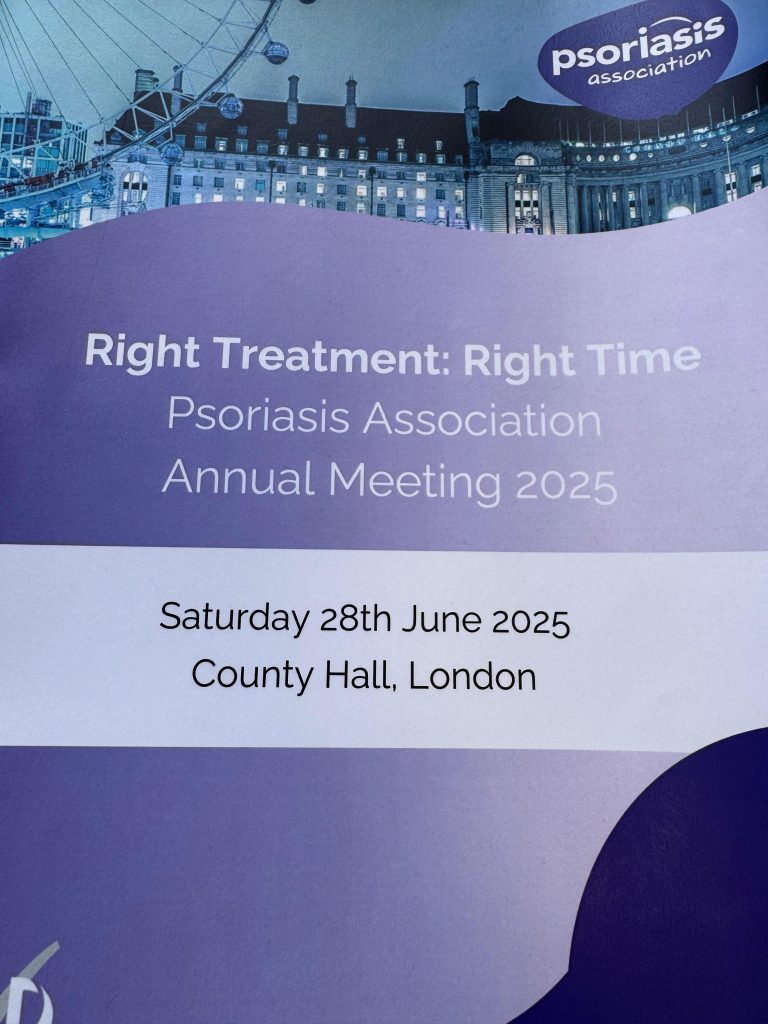Reflections on the Psoriasis Association Annual Meeting, June 2025, London by Research Assistant, Shaurya Pal
Walking into County Hall, London, on 28th June 2025, I could feel the excitement in the air. Doctors, researchers, and patients had gathered for the Right Treatment: Right Time Annual Psoriasis Meeting, all sharing knowledge about psoriasis—a skin condition that causes red, itchy patches. The main theme of the day stayed with me: giving patients the right treatment at the right time is key to keeping them safe and healthy.
The first talk by Professor Darren Ashcroft really caught my attention. He explained that factors like smoking, alcohol, and being overweight can make psoriasis worse. He also highlighted that other health conditions, such as cancer and cardiovascular disease, can influence psoriasis too. For me, this was a big reminder that treatment isn’t just about the skin—it’s about the whole patient. Understanding these links helps researchers and doctors make better choices to keep patients safe.
Next, Dr. Andrew Pink spoke about new treatments and their safety. He explained that biologics, like Icotrokinra (IL-23), and the topical Topinarof, are very well tolerated, while Spesolimab shows good results for a serious type of psoriasis. He reminded everyone that most patients have mild to moderate psoriasis, so treatments must be carefully matched to the right severity at the right time. It was inspiring to see how researchers make patient safety their top priority.
There were also talks by Dr. Thivi Maruthappu on diet and nutrition, and Dr. John Lee, who shared insights from MySkin.org, where patients contribute their experiences. These sessions showed me how listening to patients helps doctors provide the right treatment at the right time—not too early, not too late, and always safely.
In the afternoon, Professor Catherine Smith spoke about how psoriasis and heart disease share the same biological pathways, and Luc Francis, a young researcher, presented his work on biomarkers of remission. Both talks made it clear that timely treatment can prevent long-term health problems.
The day ended with patient panels and expert discussions, emphasizing that patients and researchers working together is essential to improve care.
For me, the conference was more than just learning about new medicines—it was a reminder that every decision in research and treatment should prioritize patient safety. I left inspired to continue my work, making sure that the right treatment is given at the right time, for the benefit of patients everywhere.
